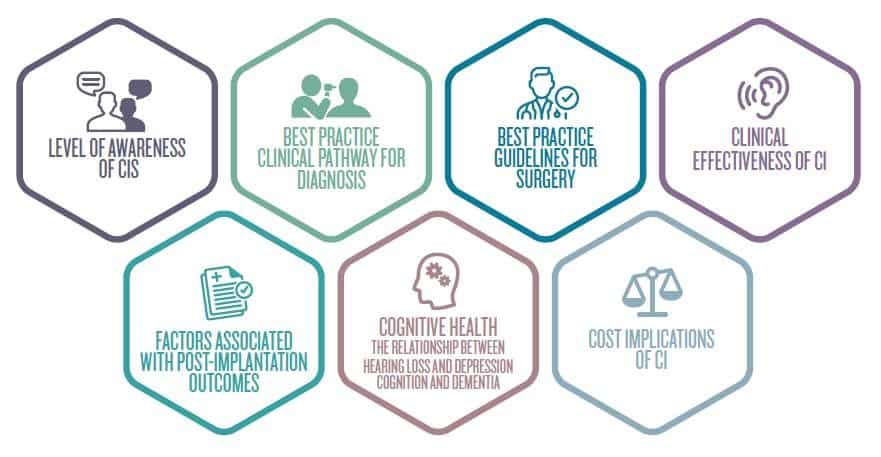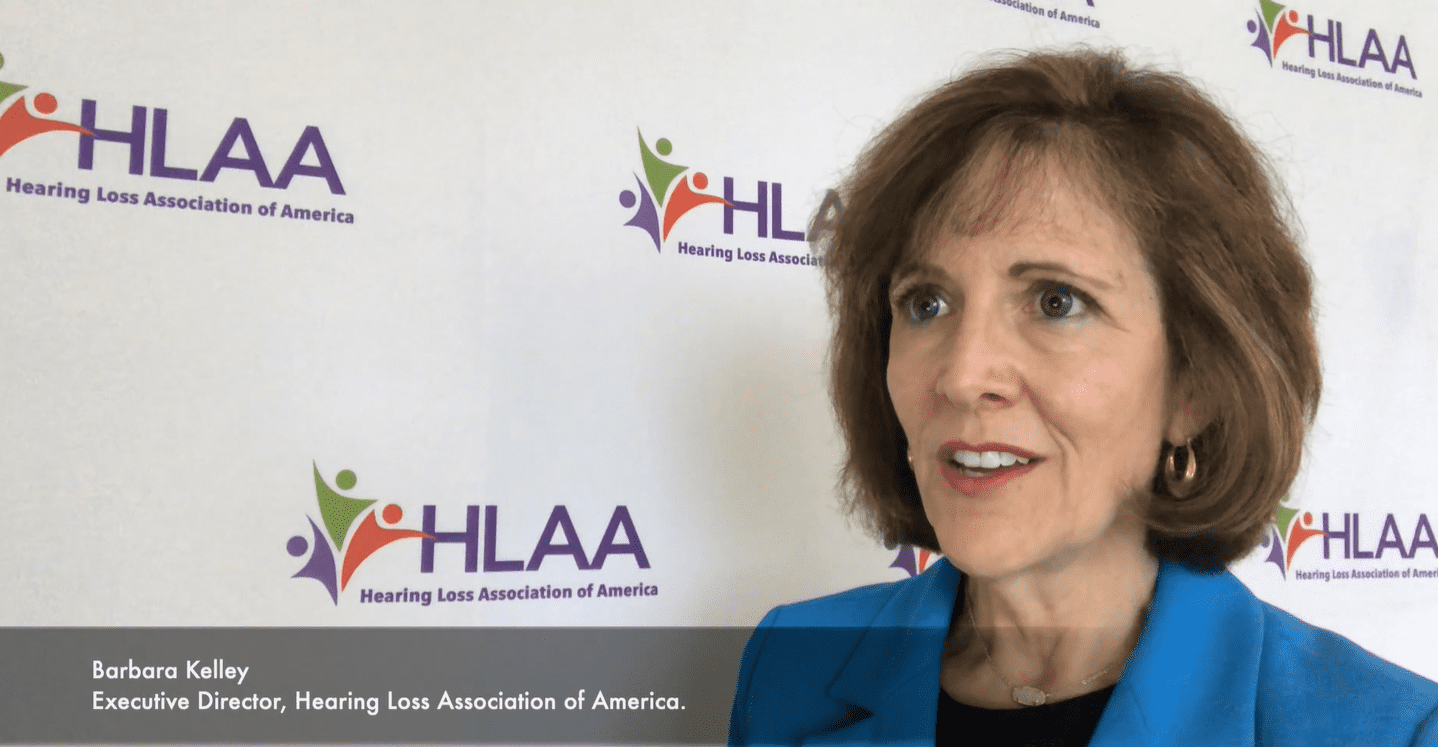A landmark publication authored by a global group of audiologists and surgeons concluded there is an “urgent need to address the lack of guidelines and awareness in order to increase patient access to treatment to improve quality of life among adults with hearing loss,” said Professor Craig Buchman, MD. Read on to understand more about this International Consensus Paper and why it is important for adults with hearing loss and their loved ones.
The World Health Organization estimates that globally there are 466 million people with a disabling hearing loss. If left untreated, by 2050 this is expected to rise to over 900 million or 1 in 10 people. To address this critical health and quality of life issue, a landmark paper was published in the Journal of the American Medical Association Otolaryngology-Head & Neck Surgery (JAMA). The International Consensus Paper (ICP), Unilateral Cochlear Implants for Severe, Profound, or Moderate Sloping to Profound Bilateral Sensorineural Hearing Loss: A Systematic Review and Consensus, was developed to address the urgent need for global guidelines on best practice for cochlear implants in adults with bilateral severe, profound, or moderate sloping to profound hearing loss.
The publication of the ICP was a result of a systematic review and consensus among 31 global cochlear implant experts from 13 countries. The paper seeks to improve access to appropriate hearing loss treatment for people around the globe. The ICP just published in JAMA is ground-breaking because it provides global guidance for the standard of care for cochlear implantation in adults.
“We came together with the Consumer Professional Advisory Committee with advocacy groups from around the world and the cochlear implant manufacturers to discuss the importance of moving cochlear implant awareness and education forward, so that the individual who lives daily with hearing loss can make better, more informed choices,” said Barbara Kelley, Executive Director of the Hearing Loss Association of America.
What was the result of the paper?
The result of this methodical paper among leading cochlear implant experts was the development of 20 consensus statements across seven vital categories that address, among other topics, cochlear implant awareness, clinical effectiveness of cochlear implants, association of hearing loss with cognition, depression and isolation and the cost-effectiveness of cochlear implants.
One of the top conclusions stated in the ICP is that the level of awareness of cochlear implants among primary and hearing healthcare providers is inadequate. The consensus states that this lower level of awareness among healthcare providers leads to under-identification of eligible candidates. This is critically important to provide clear referral pathways to help increase access for those who would benefit from cochlear implants.
“If the patient’s healthcare provider is not offering cochlear implants as an option, these statements in the ICP help people know what they might expect, what they could expect or what the future might hold for their lives,” said Kelley.
What are the benefits of cochlear implants for adults?
It was also determined by the group that cochlear implants significantly improve speech recognition in both quiet and moderate noise in adults with bilateral severe, profound or moderate sloping to profound sensorineural hearing loss and that these gains in speech recognition are likely to remain stable over time. Additionally, it was found that adults who are eligible for cochlear implants should receive the cochlear implant as soon as possible to maximize post-implantation speech recognition. Cochlear implant recipient, Mariann, recalls her hearing struggles prior to receiving a cochlear implant.
“It was frightening, actually. I was sitting at the table with all of these people and I couldn’t hold a conversation,” said Mariann, now a cochlear implant recipient.
Hearing loss can impact relationships, affect people’s ability to contribute to society and may cause isolation. But many people believe hearing loss is unavoidable as we get older, so it’s often not given the attention it should. Evidence suggests that treatment with cochlear implants can lead to improvement in these aspects of well-being and mental health.
“Because I can hear and see and do, I’ve taken more interest in my own life around me. I’m sharper in the mind; I’m comprehending better; I’m processing it better and I’m on the ball,” said Mariann.
In terms of the cost of cochlear implants, it was found that cochlear implants, even with only one implanted ear, are cost-effective and associated with increased employment and income.
“Here in the U.S. everyday 10,000 people turn 65 and we know that age is strong predictor of hearing loss, especially between the ages of 60 to 69. This Baby Boomer generation wants to do everything they can to stay fit, to stay in the workplace longer and to enjoy retirement life. That means taking care of your hearing health. Since [people] want to take control of their own hearing healthcare, they need to know the facts about cochlear implants and what can be done about hearing health in order to stay in the mainstream of life,” said Kelley.
If you are interested in learning more about the standard of care for cochlear implantation in adults, please visit www.adulthearing.com for more information.
